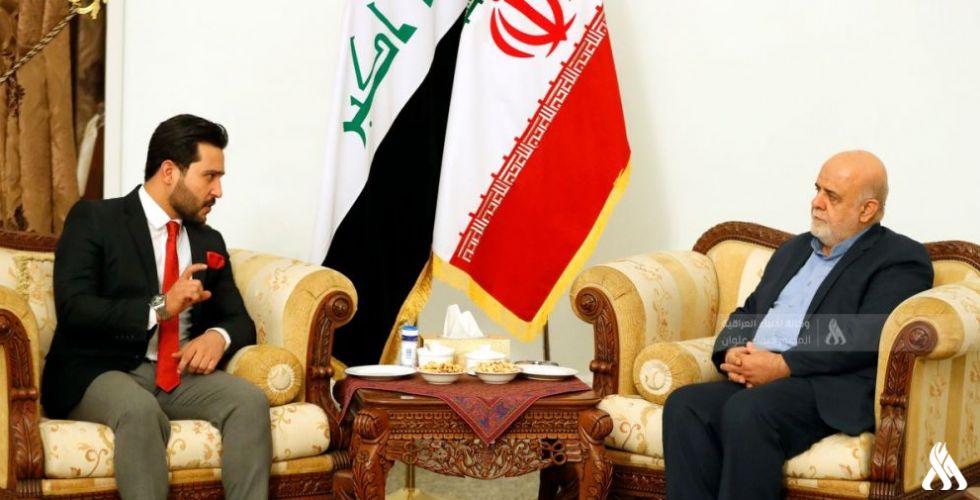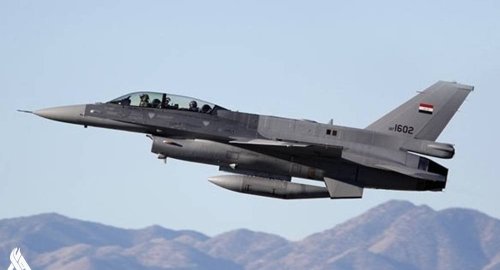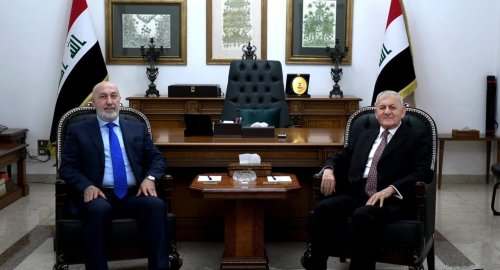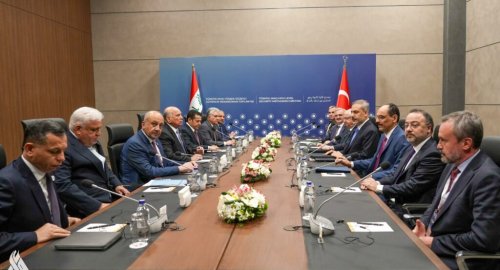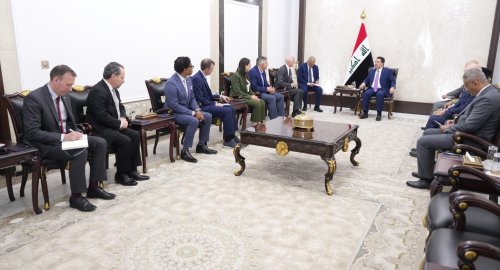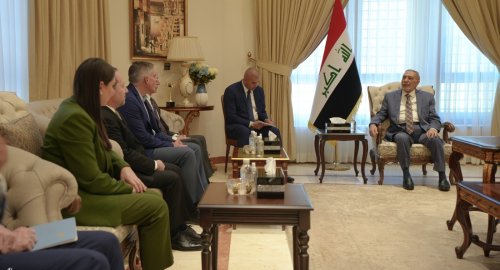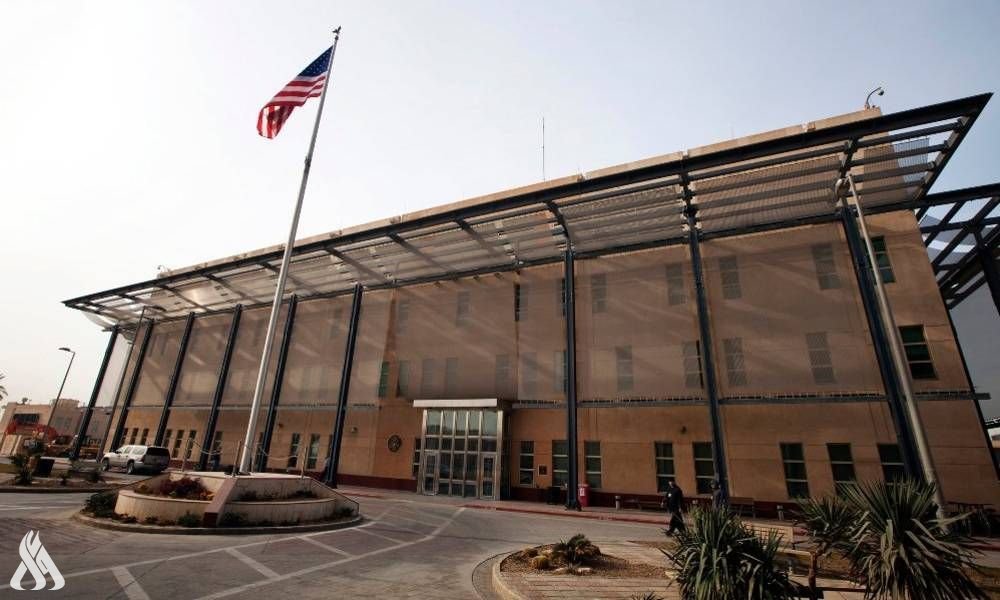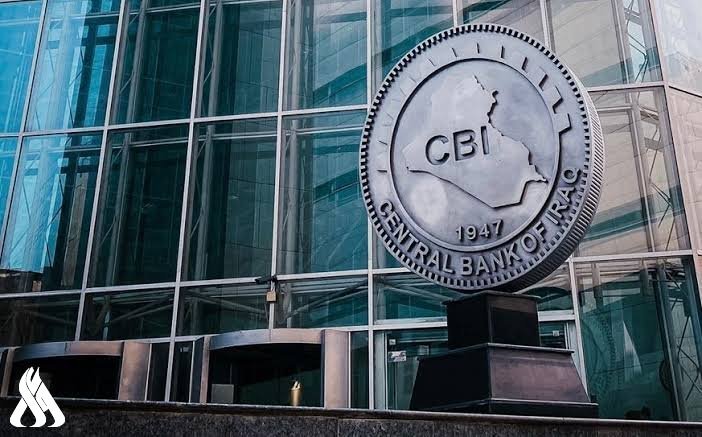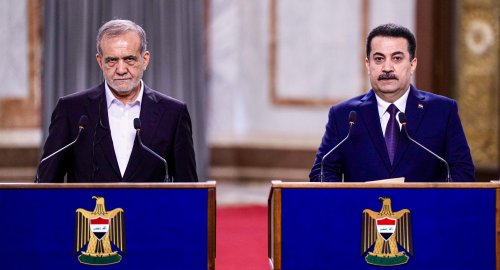
Key Highlights from Prime Minister Mohammed Shia Al-Sudani's Remarks During the Joint Press Conference with Iranian President Masoud Pezeshkian on His Visit to Iraq

- 11-09-2024, 16:58
Baghdad-INA
Prime Minister Mohammed Shia al-Sudani confirmed today, Wednesday, that progress has been made in the railway connection with Iran, while pointing to the success in controlling the situation on the border.
The Prime Minister said in a speech during a joint press conference with Iranian President Masoud Pezeshkian during his visit to Iraq, which was attended by the correspondent of the Iraqi News Agency (INA):that “The Islamic Republic of Iran has faced a significant turning point with the tragic loss of the martyr President Ebrahim Raisi and his colleagues. We reaffirm our support for President Pezeshkian as he assumes his responsibilities.
Iraqi-Iranian relations are distinguished by their deep historical, religious, cultural, and mutual interests, reflecting a long-standing and strong bond between the two neighboring Muslim peoples.
This historical relationship can translate into the highest levels of cooperation and partnership, working together to face current challenges and support regional stability.
The shared economic file is a crucial gateway to fulfilling the aspirations of both our peoples. In two meetings, we discussed mechanisms to advance this vital file.
Our discussions focused on the strategic bilateral partnership across multiple fields, which serves as a key pillar in supporting the plans of both governments and is essential for economic integration.
We confirmed our efforts to enhance transportation links and logistical connectivity between the two countries. We have made progress on the Basra-Shalamcheh railway connection, which will facilitate the movement of citizens, especially during religious pilgrimages.
We also explored the importance of activating freight transport links, particularly with our major project, the "Iraq Development Road."
Discussions covered the Khanaqin-Munthiriya-Baghdad road project, and we are working on preparing the border crossing for this important strategic route.
We focused on the border industrial zones, which are being developed in three provinces: Wasit, near the city of Gassan, Maysan, and Basra. Additionally, we allocated 2,000 dunams in Zurbatiyah for an economic city.
We discussed the role of Iranian companies, particularly those with expertise in executing major infrastructure projects.
Iraq's government supports expanding Iranian economic cooperation with regional countries, as expanded partnerships will positively impact regional stability.
Today, we signed 14 memorandums of understanding in various fields. Along with previously signed agreements, they form a promising roadmap for strengthening joint cooperation between the two countries.
We thank our brothers in the Islamic Republic for their role in facilitating the gas purchase agreement with Turkmenistan.
We also appreciate their support in providing gas to power Iraq's electricity plants, despite the challenges caused by unjust sanctions on payments.
We discussed the threat to regional stability posed by the Zionist aggression in Gaza, which has surpassed legal and ethical boundaries amidst the international community's failure to act, and the continued genocide against the Palestinian people in the occupied territories.
Our joint stance on this aggression remains clear and firm, and we have consistently opposed the expansion of the conflict and the violation of national sovereignty. The international community must fulfill its legal and ethical obligations.
We addressed security cooperation, reiterating our principled and constitutional stance that strictly prohibits any group from carrying out acts of aggression, armed operations, or cross-border threats against the Islamic Republic of Iran.
We agreed on managing security, especially in the border areas, and the bilateral security committee continues its work.
There is ongoing communication between security agencies to secure the borders and prevent all forms of smuggling that harm internal security in both countries.
This official visit is significant and represents a driving force for the growing bilateral relationship, supported by the strong and sincere will of both leaderships to further cooperation and integration.
US Embassy: Trade Mission of 60 Companies Visits Iraq
- politics
- 25/04/07
CBI unveils comprehensive reform plan to modernize banking sector
- Economy
- 25/04/07
Al-Sudani Meets Delegation from J.P. Morgan Bank
- politics
- 25/04/08
